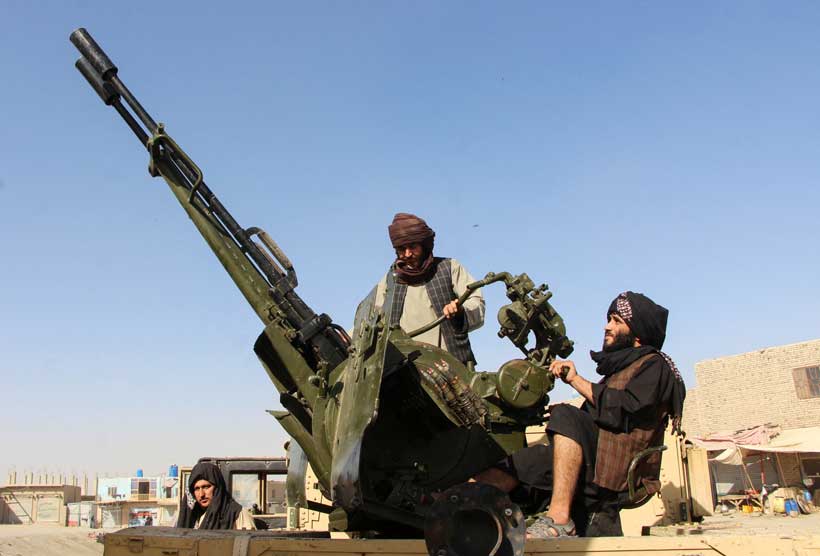Ungoverned Space and Regional Spillover, Rethinking Afghanistan’s Borders
The Afghanistan crisis is generally spoken of as a crisis of the hour in terms of the Taliban, outside power intervention, or an unsuccessful election season. Such framing is not as profound as the problem. The state and province conquests, bargaining, and coercion united Afghanistan, the state, but not a civic transaction between peoples. Although the significance of an actual national flag was yet to arrive, Tajiks, Uzbeks, Hazaras, Pashtuns, and minorities occupied different regions, related to regional leaders, tribal councils, and local trade routes. The power was not national but local and individual. The contemporary state emerged later, and at the inception of its emergence, it was naturally skewed in a manner that remained to fulfil the definition of politics.
The birth of Ahmad Shah Abdali, recalled as Ahmad Shah Durrani in the middle of the eighteenth century, could be recalled as one of the foundational legends. It was also when the military alliance of one community had become the core of the state’s strength. The shell of a state was built by Ahmad Shah through warfare, and the coalition of Pashtun tribes consolidated the territory and gained more lands, with the foundation of a heterogeneous and broad territory. The logic, however, was not inclusion. It was piety, preference, and blackmail. Peripheral territories like the non-Pashtun were to be ruled as they were expected to submit, pay, or surrender when the center was strong and to ignore when it was weak. That model had never killed with Ahmad Shah. It was a practice that has been emulated by other leaders who have come after and tried to play a stage of unity without building institutions that can be regarded as belonging to all groups.
The trend was established following the demise of Ahmad Shah. Kabul was rarely what it purported to be. Power moved around among leaders, but the leadership was generally stopped at metropolises, armies, and major highways. Large areas were something like semi-autonomous states, which cooperated with the state, fought it, or alternated in each of the seasons. When they say that Afghanistan has never had full rule of its own land, people are not hurting the country; they are saying a structural truth, which is that the center has never had sovereignty and has never received legitimacy on the full map. The actual authority was left to the ethnic groups, strongmen, clerics, and commanders. In that perspective, any change in Kabul became existential to the non-residents of the city, as the state was no competition referee but a prize.
Even the geography and the demography make this worse. Pashtuns have been estimated to be approximately 42 percent, Tajiks approximately 27 percent, and Hazaras and Uzbeks approximately 9 percent, and the rest are made up of Turkmen, Baloch, and others. Two official languages exist: Pashto and Dari, but the status of any language could never be a purely cultural one since it was always a political one. Even the name of the country, Afghanistan, is perceived by most Afghans as a loaded word, and that practice is tied to the Pashtun identity and leadership even when they are being applied as a national one. People are angry because of the gap between the way the label instructs us to feel and the way that people feel. Pleas of togetherness are empty when the name of a state is doubted even in real life.
The south, northeast, and many of the cities are then the Pashtun, Tajik, Uzbek, and Hazara distributions, respectively. These areas are not eliminated by violent migration, displacement in war, or careful political manipulation. Rather, the blurring would contribute to some new fault lines, and communities would need to be pushed into the interspace of their neighbors without an established system of solving disagreements without favoritism. The cross-border relationships include the Tajiks and Tajikistan, Uzbeks and Uzbekistan, and Pashtuns and Pakistan, and there is a stable tug-of-war that the neighbors and patrons can make use of. A low external and high center connection is a formula for continued disintegration.
This is the sphere where the aspect of security cannot be neglected. The decades of controversial control and open borders have transformed parts of Afghanistan into an attractive location for militants that occupy uncontrolled space. When the state cannot provide some kind of protection over territory, the armed networks take its position and deliver protection, taxation, ideology, and logistics. These networks do not have a localization. Training, financing, and planning have border-crossing characteristics, subjecting the region to an environment of a shared threat. At that, the question is not only a moral or historical one, but one of expediency: what are the political structures that may be implemented to make sure that Afghanistan will no longer remain a jihadist temptation to armed groups that can break the peace of its neighbors?
The solution is suggested in a provocative manner, and that is the territorial restructuring, a peaceful partitioning of the state along ethnic and regional lines: Uzbek majority areas become Uzbekistan, Tajik majority areas become Tajikistan, Pashtun majority areas become Pakistan, another separate state is established called Hazaras, etc. The appeal is obvious. It will eliminate the sovereignty of a group, a distinct line of power, and smaller political units, which might be more efficient to govern. It also tries to compare borders to lives in stating that when people believe that the state is an extension of them and not the rulers of the state, then stability is achieved.
